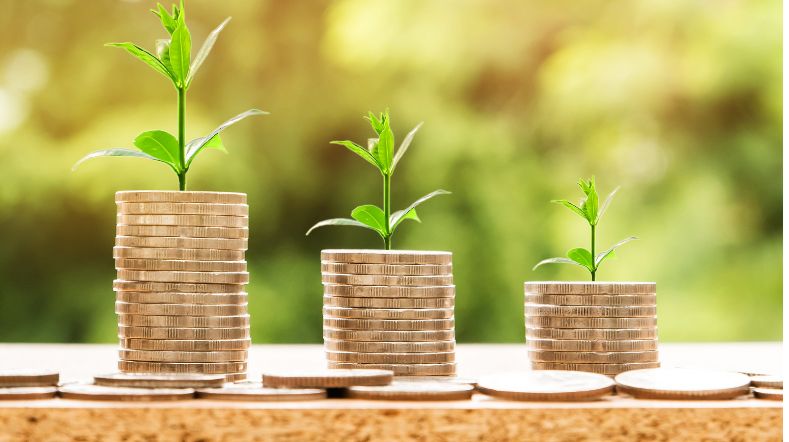
Citizen participation in the energy transition
Citizen participation in the energy transition is necessary. It makes citizens feel more involved in what is happening in their region. It also contributes to public support for government decisions. Check out how municipalities can shape citizen participation.
Why citizen participation?
Citizen participation in the energy transition is essential. Multiple TNO studies show that intensive coordination with residents provides valuable insights.
Utilising these insights in project and policy decisions allows for consideration of local interests and desires, thereby strengthening democratic legitimacy. Engaging with communities reveals their wishes, concerns, questions, and potential resistance.
A well-considered participation process identifies opportunities for synergy. By properly representing residents, an open, transparent, and procedurally fair process can be established.
Participation in renewable energy projects on land
To achieve national goals for sustainable energy and CO2 emission reduction, the Netherlands focuses on producing renewable energy on land.
Through qualitative and quantitative research, we gather insights into how residents experience the process of solar and wind energy projects in their vicinity. This contributes to new insights for local and national policymakers and project developers.
The government aims to actively involve residents in the development of solar and wind parks.
Our research based on five themes—decision-making authority, diversity, consultation, competence of the initiator, and fair distribution of benefits and burdens—reveals which aspects of citizen participation contribute to a positive experience of both the process and the final solar or wind park.
We investigated participation in practice (pdf) (in Dutch): citizen participation and their experience with solar and wind parks. Based on this research, a workshop was organized with a group of policymakers from the Ministry of KGG.
This quantitative and qualitative research examined the factors that determine how residents perceive the development of a wind park (in Dutch) (pdf) in their immediate environment. It also provides insights into project-specific context factors (e.g., history and relationships between and involvement of various stakeholders in the area) that influence the experience.
For the research, a questionnaire was sent to a sample of 8,400 residents living within a radius of up to 3,000 meters around a wind park. Residents were asked about their experiences before, during, and after the realisation of the wind projects.
TNO was asked to monitor the experiences and knowledge about citizen participation in the energy transition available to those implementing participation processes.
For several years, TNO has provided insights into the experiences and needs for support of municipalities regarding citizen participation in the development of wind and solar parks, heat, and electricity infrastructure. This is done in a periodic overview in Dutch: 'Citizen Participation in the Energy Transition in the Physical Environment.'
The needs for support of municipalities appear to be increasing. Compared to 2023, twice as many municipalities in 2024 indicate a need for an online guide on citizen participation.
While informing and reaching residents and local initiatives is going well, the lack of labor capacity within municipalities and involving specific groups remain challenges. For more information on the development of municipalities' support needs, see the reports below:
Read the reports (in Dutch only):
Public perception of wind turbine circularity
Wind energy is an important source of sustainable electricity in the Netherlands. Thanks to new solutions, we can now recycle or reuse approximately 85-90% of wind turbine components.
To understand how the Dutch public perceives the recycling of wind turbines and their blades, we conducted an initial quantitative study. We also investigated how aware the Dutch are of and how much they support circular solutions.
Accelerated studies
Commissioned by the Ministry of Economic Affairs and Climate Policy (EZK), TNO conducted several short-term studies on current topics within citizen participation in the physical environment.
These studies, in collaboration with NP RES, VNG, and IPO, aim to accelerate the energy transition by providing an overview of the latest knowledge from domestic and international sources.
A citizens' assembly is a form of citizen participation in decision-making, where a group of residents meets multiple times to provide informed advice to politicians on a specific policy issue and related measures.
An accelerated study summarized the lessons learned from previous citizens' assemblies (In Dutch).
A national citizens' dialogue consists of a series of meetings on issues of national importance. Residents with different viewpoints can engage in discussions with each other and sometimes with other stakeholders.
This research collected experiences with citizens' dialogues (in Dutch) from both domestic and international sources.
Participation mapping
In late 2021, TNO mapped citizen participation in the Netherlands across three themes: national policy, wind energy, and gas-free neighborhoods.
The mapping revealed differences in municipal engagement strategies, with some areas fostering early participation, while others struggled with marginalization. It also highlighted varying citizen attitudes towards gas-free neighborhoods, depending on local contexts.
These insights underscore the importance of tailored, inclusive participation processes. The mapping serves as a valuable tool to improve future citizen engagement in energy transition projects, ensuring more effective, transparent, and context-sensitive strategies.
Read more about participation mapping in our report Citizen participation in the Netherlands: participation methods for national climate policy, onshore wind energy, and gas-free neighbourhoods (pdf) (in Dutch)
Get inspired
Climate fund applications from the perspective of broad prosperity


Local authorities see energy support as a key transition enabler in tackling energy poverty


Public support


Social innovation: The social aspects in the energy transition


The impact of alternative economic future concepts in the 'Beyond Growth' debate


